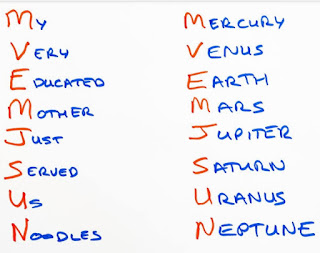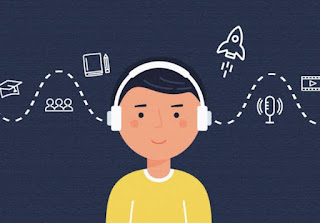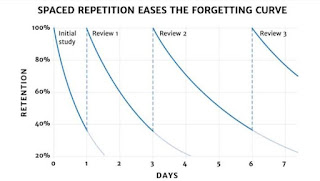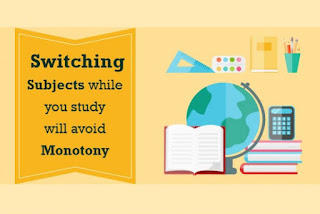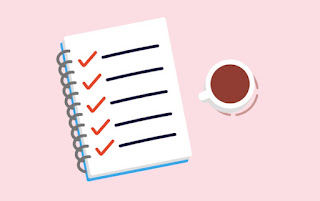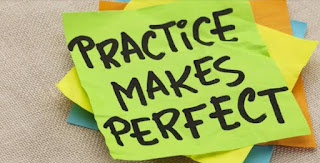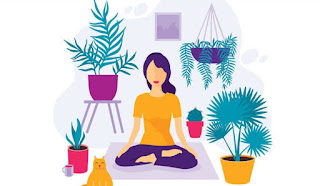TOP 10 TIPS TO REMEMBER/ MEMORISE THINGS EASIER
I know that many of you including me also hate studying with an almost physical passion. It was extremely hard just to sit down and open a text book.
1. RECORD WHAT YOU ARE MEMORISING
—This is especially useful if you’re trying to memorize information from a lecture. Use a tape recorder to track all of the acquired facts being spoken and listen to it.
I know that many of you including me also hate studying with an almost physical passion. It was extremely hard just to sit down and open a text book.
1. RECORD WHAT YOU ARE MEMORISING
—This is especially useful if you’re trying to memorize information from a lecture. Use a tape recorder to track all of the acquired facts being spoken and listen to it.
If you’re trying to memorize a speech, record yourself reading the speech aloud and listen to yourself speaking. Obviously, this is most helpful for auditory learners, but it’s also handy because it ensures that you’re getting more context from a lecture that will help you learn the information faster.
2. WRITE EVERYTHING DOWN
—Before you start trying to recall everything from memory, write and re-write the information. This will help you become more familiar with what you’re trying to memorize.
Doing this while listening to your tape recorder can also help you retain a lot of the data. This is most useful for experienced learners.
3. BE A TEACHER
— The most effective method for me is to teach the information to someone else. You can do this in a variety of ways. You can lecture the knowledge to someone sitting right in front of you (or the mirror, if you can’t convince anyone to sit through it) and explain everything extemporaneously.
If what you’ve learned needs to be recited verbatim, then do this in front of someone as well in order to get a feel for what it will be like to recite the text to the intended audience.
My favorite method for this is creating tests for other people. Take the information and predict what questions will come out of them. Use multiple choice, matching and so on to present the data in test format and see how someone else does.
4. USE MNEMONICS
— A mnemonic is a tool that helps us remember certain facts or large amounts of information. They can come in the form of a song, rhyme, acronym, image, phrase, or sentence. Mnemonics help us remember facts and are particularly useful when the order of things is important.
5. LISTEN TO THE RECORDING
—While doing unrelated tasks like laundry or driving, go over the information again by listening to your tape recordings. This is certainly auditory learning but it will still supplement everything you’ve shoved into your short-term memory.
6. USE SPACED REPETATION TECHNIQUE
—Your brain protects you from overloading with useless information. That’s why all new information is stored in the short-term memory, not in the long-term memory. If you don’t repeat it or use it, you forget it very quickly.
The Eebbisghaus forgetting curve shows that just 1 hour after learning learning that we forget more than half of the information. One week later we remember only 20% of it.
In order to keep the information in your head for a longer time, you need to try to put it into your long-term memory. Forced memorization is not very effective in this case because your brain can’t make sense of the information quickly and form strong associations. If you want to remember things for a long time, you need to extend the memorization period. It should be as long as a few days or even weeks
So spaced repetion says after learning the information repeat it after 1 hour then after 1 week then after 1 month (if you want to remember things for long time). If you want to remember the information for short term — repeat it just after learning then after 15 to 30 minutes then after 6 to 8 hours then after 24 hours. This is the most effective method to remember the information.
7. MAKE A STORY
— If you are trying to memorize lot of words or a long history answer then this method is the best. For example you want to learn the system of subsidiary alliance, for this you can think of small east Indian company's army taking the forces of Indian rulers and are protecting them from their (the company's army) army and the Indian ruler are paying for this etc.. The weirder the story the easier to remember it. Try framing your story for remembering long answers.
8. USE FLASH CARDS
—Whether learning new information or preparing for a test, flashcards can be a great way to review lots of information quickly. They are easy to make, and easy to use because you can take them anywhere. There are many good ways to help you memorize your flashcards, and you can help yourself all along the way from learning the information to acing the test. Making your flashcards the right way and practicing good study habits while using them will help you get the most out of your work. If you don't want to waste paper for making flash cards you can use quizlet app.
9. WRITE DOWN WHAT YOU HAVE LEARNED (DON'T COPY)
— Writing requires more brain activity, activates memory, and engages you physically in putting words on paper. It's like being engaged in a dialogue, as opposed to merely listening to someone talk. There is nothing wrong with simply reading and listening, but writing and speaking engage more of your brain. Thus helping to remember it.
10. TAKE TESTS
— By taking tests of your own will help you in remembering things for long term. If you make questions of your own this will be more effective. Taking tests will make you familiar with your weak and strong points.
CONCLUSION
LET'S RECAP ALL THE TIPS
1. RECORD WHAT YOU ARE MEMORISING
2. WRITE IT DOWN
3. BE A TEACHER
4. USE MNEMONICS
5. LISTEN TO THE RECORDING
6. USE SPACED REPETITION
7. MAKE A STORY
8. USE FLASH CARDS
9. WRITE WHAT YOU HAVE LEARNED (DON'T COPY)
10. TAKE TESTS
Besides these all tips always remember that understanding is better than memorising. But there are some things that need to be memorise like history dates, biological names, inventions, chemical equation etc.. Therefore I made this blog . I hope you like them. Also if you know any other tip that you use to memorise faster don't forget to tell us in the comments.



